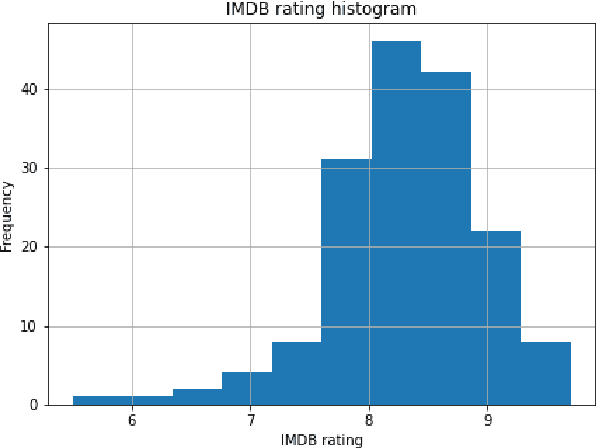Anna Luiza Gomes
Predicting IMDb Rating of TV Series with Deep Learning: The Case of Arrow
Aug 28, 2022



Abstract:Context: The number of TV series offered nowadays is very high. Due to its large amount, many series are canceled due to a lack of originality that generates a low audience. Problem: Having a decision support system that can show why some shows are a huge success or not would facilitate the choices of renewing or starting a show. Solution: We studied the case of the series Arrow broadcasted by CW Network and used descriptive and predictive modeling techniques to predict the IMDb rating. We assumed that the theme of the episode would affect its evaluation by users, so the dataset is composed only by the director of the episode, the number of reviews that episode got, the percentual of each theme extracted by the Latent Dirichlet Allocation (LDA) model of an episode, the number of viewers from Wikipedia and the rating from IMDb. The LDA model is a generative probabilistic model of a collection of documents made up of words. Method: In this prescriptive research, the case study method was used, and its results were analyzed using a quantitative approach. Summary of Results: With the features of each episode, the model that performed the best to predict the rating was Catboost due to a similar mean squared error of the KNN model but a better standard deviation during the test phase. It was possible to predict IMDb ratings with an acceptable root mean squared error of 0.55.
 Add to Chrome
Add to Chrome Add to Firefox
Add to Firefox Add to Edge
Add to Edge